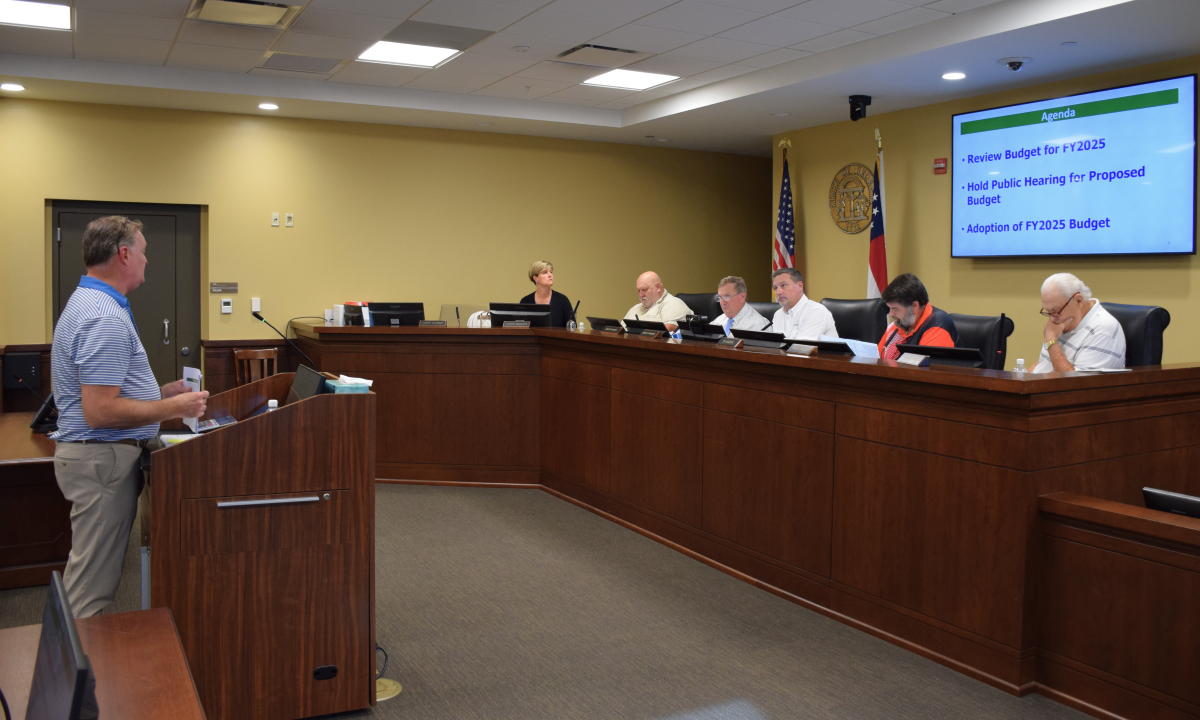The thorny problem of surprise medical billing has once again sparked competing remedies within the General Assembly.
Past attempts at a solution have ended in failure and frustration. Whether this year’s bills will actually lead to a resolution is anyone’s guess.

Surprise bills occur when consumers have procedures or visit ERs at hospitals in their insurance network, then get separate bills from non-network doctors involved in their care. These unexpected charges can add up to hundreds or even thousands of dollars.
Surprise bills from ER doctors, anesthesiologists and radiologists, among others, often infuriate consumers.
It’s not just a Georgia issue.
More than half of Americans have received an unexpected medical bill, according to an August survey by the research group NORC at the University of Chicago. One-fifth of emergency-room admissions triggered a surprise bill, economists from the Federal Trade Commission reported in 2017, according to Bloomberg News.
President Trump has also taken on the issue, saying it will be a top priority for his administration. Members of Congress on both sides of the aisle are working on surprise billing solutions as well.
A few states have passed legislation addressing surprise billing.
This year’s coming debate in the General General Assembly may largely echo what’s been said in previous battles. The key sponsors of legislation are the same as in past years, and the fight is likely to be between an insurer-backed proposal originating in the House and a physician-backed proposal arising in the Senate.
The goal of each is to reduce the financial burden on consumers in such billing disputes between insurers and physicians.
Consumer advocacy groups have underscored the financial impact on patients from unexpected bills.

“Consumers purchase health insurance as much to protect their finances as they do to protect their health, and when they receive surprise out-of-network medical bills, it feels like an unfair deal — and often it is,’’ says Laura Colbert of the advocacy group Georgians for a Healthy Future. “Commonly, consumers who receive surprise bills had no choice or control over their health provider and no way to find out ahead of time who would be treating them and if they were in network.‘’
Sen. Chuck Hufstetler, a Rome Republican, told the Senate Insurance and Labor Committee on Thursday that his proposal, Senate Bill 56, aims “to get the consumers out of the middle’’ of such pay disagreements.
Hufstetler told the Senate panel that Georgia is considered the leading state for having narrow networks, defined as health plans that offer a limited choice of health care providers in exchange for lower premiums.
While the legislation promotes transparency, it mainly focuses on bills generated by emergency room care. It would calculate insurers’ payment to non-network medical providers using a formula that would include a “benchmarking” database as a reference point.
The Medical Association of Georgia, a leading physician organization, testified in support of the bill, saying it would eliminate balance billing for patients.

Also supporting the proposal was Michele Kimball, president and CEO of Physicians for Fair Coverage, who said the combination of high-deductible policies and balance billing “is creating a perfect storm for patients.’’
But officials representing insurers criticized the database payment provision. Allan Hayes of the America’s Health Insurance Plans, a national trade group, said the reimbursement formula would increase health care costs by using a baseline of physicians’ billed charges. No state has passed a similar structure, Hayes said.
Jesse Weathington of the Georgia Association of Health Plans said his organization agrees with increasing price transparency and consumer protections. But the Senate bill, he said, would increase health care costs. Kaiser Permanente also testified against Senate Bill 56.
The panel approved the measure, which now goes to the Rules Committee in the Senate. Hufstetler said that he was “hopeful that we can work something out with the House. I think there’s some room for compromise.’’
Meanwhile, House Insurance Chairman Richard Smith, a Columbus Republican, has put forward a bill — similar to one he introduced last year — that emphasizes increased transparency.

Medical providers, if asked, would have to give patients information about which doctors will be involved in a non-emergency hospital procedure, whether they’re in the patient’s network, and what the resulting fees would be, under House Bill 84.
“You get to the hospital, you think you’ve done everything right. The doctor is in the network, the hospital is in the network,’’ Smith told the House Insurance Committee on Tuesday. But one of the physicians who helped on the procedure often isn’t in the network, resulting in a potentially expensive bill, Smith said.
He told lawmakers that if his bill were to pass the General Assembly, an educational campaign would be needed for patients, so they would know what to ask about billing before they undergo a procedure.
There’s no compensation formula in the House bill.
Smith said he has been told the Senate proposal, by putting compensation into the Georgia Code, would be found unconstitutional even if it passes.

He said he would move to block a database, Fair Health, from being a part of any possible compromise, saying it would raise health care costs. Supporters of the Senate approach, meanwhile, say Fair Health is used by the Georgia workers’ compensation system.
Smith, when asked whether a compromise would be worked out and approved, said, “I’m going to be surprised.’’







